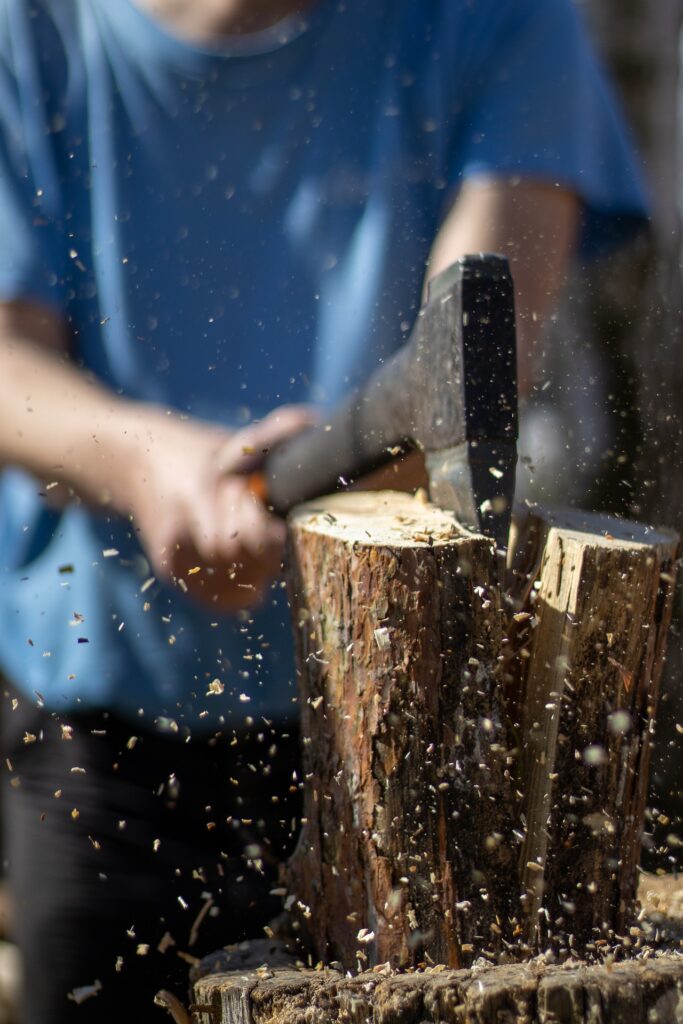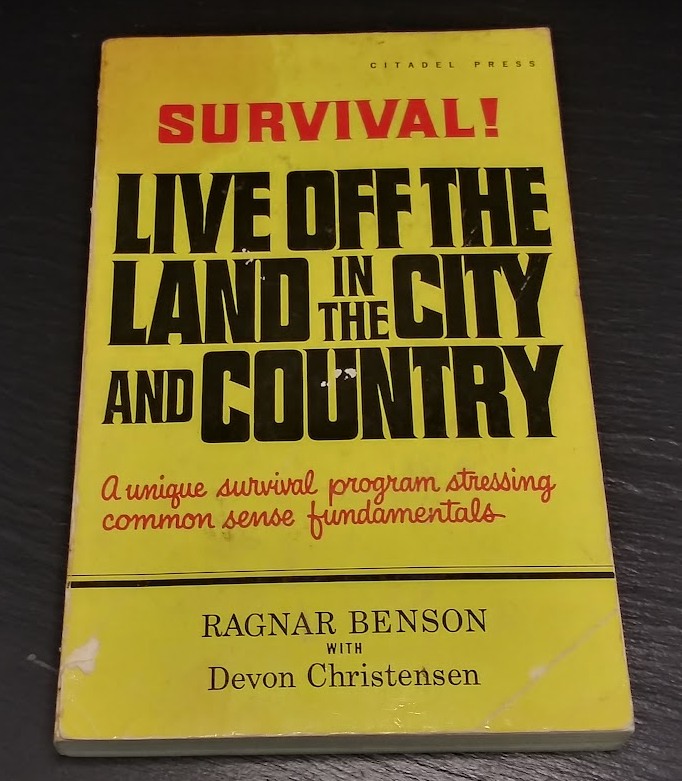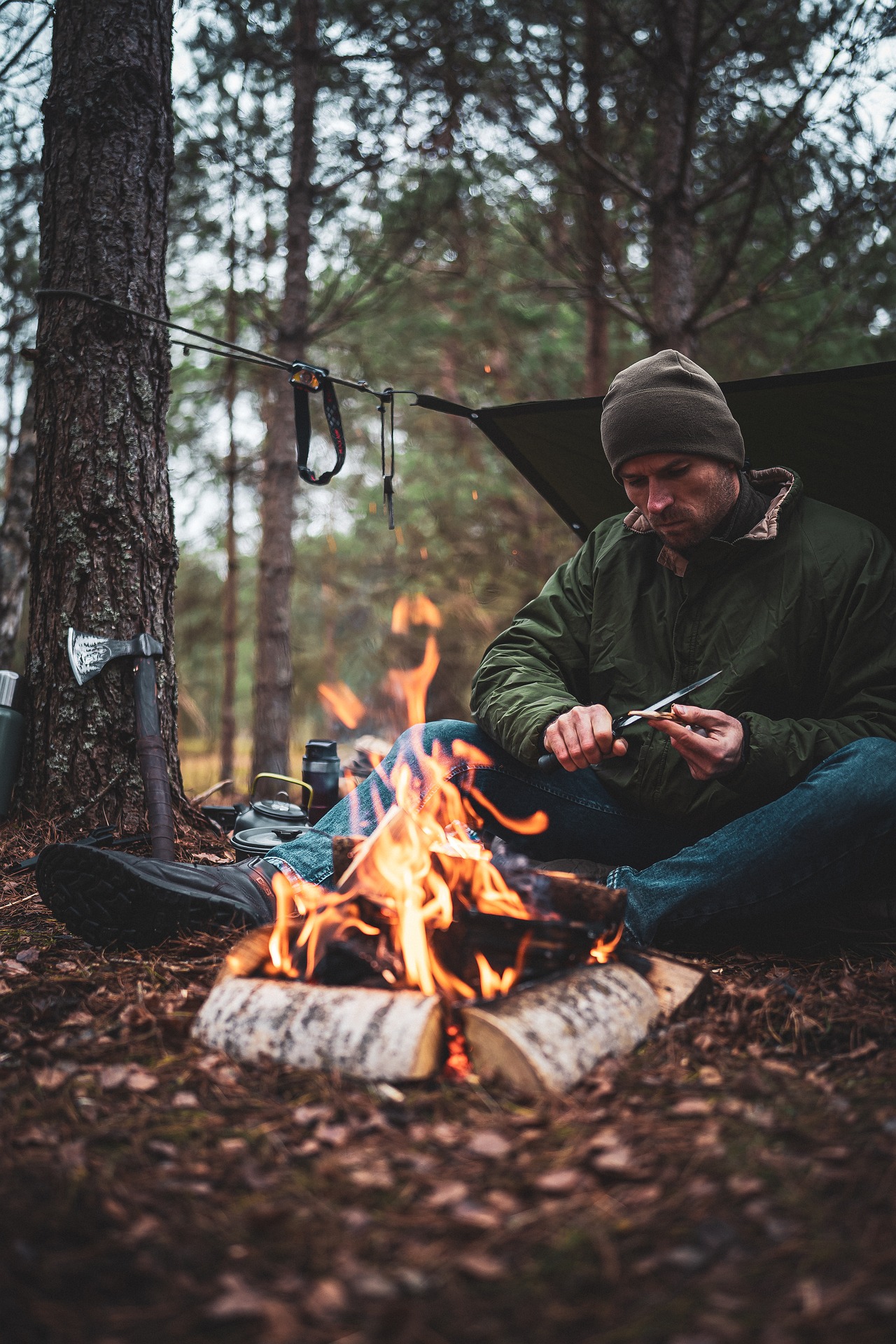The notion of conserving resources in the field is a concept that I learned from John McCann. He’s a noted survival instructor and recently retired from running a company called Survival Resources.
When you’re out in the field, conserving resources is a wise idea. The focus here is mostly on the supplies and gear you have with you. There are ways to leverage natural resources to conserve your packed ones.
Let’s look at a few examples.
Conserving Resources – Tinder

Every outdoorsperson worth their salt keeps a fire kit with them when they hit the trail. The kit typically contains one or more methods of lighting the fire, such as a disposable lighter, as well as some tinder. This could be something store bought or homemade.
Either way, a good idea is to utilize natural forms of tinder whenever possible, such as dry grass or plant fluff. Doing so conserves your packed tinder for times when it’s truly needed. You might go so far as to keep an empty zippered plastic bag in your pack and use it to store tinder you’re able to scavenge during your hike.

Every time you use your hatchet, axe, or knife to process firewood, you’re going to dull the edge a bit. Whenever possible, avoid using those tools and use natural ones instead. For example, wedge branches between two close trees and snap them to size with a lever action, rather than chopping them into pieces. Alternately, you don’t need to break them at all and you can just feed them into the fire a little at a time.
Conserving Resources – Energy
This isn’t something you keep in your pack, but it is definitely a finite resource, perhaps the most important one you possess. Conserve energy as much as you can. Ragnar Benson was one of the forefathers of the modern survivalist movement or whatever you might want to call it. He was a very prolific author through the 1980s and 1990s, penning numerous books on various aspects of survival and what we today call prepping.

He came up with what he called the Rule of Survival Thermodynamics. Basically, it boils down to not expending more energy on a task than you’ll derive from it. For example, it makes little sense to go on a lengthy track, stalk, and hunt if you aren’t certain to harvest the animal. A better option is to acquire food through more passive means, such as trapping critters and fishing, as well as harvesting wild edibles.
While we’re on the subject of energy, if you’re well and truly lost, staying put is a far better choice than wandering around hoping you’ll find your way back home. Search and rescue teams will have a much easier time if they’re not looking for a moving target. Plus, you won’t tire yourself out and make stupid mistakes.
If you’re in a bad situation, whether we’re talking about being lost in the woods or sheltering in place at home in the wake of a disaster, it’s important to use your head for more than a hat rack. Don’t waste resources, particularly ones that will be difficult to replenish in the field.
Read the full article here











